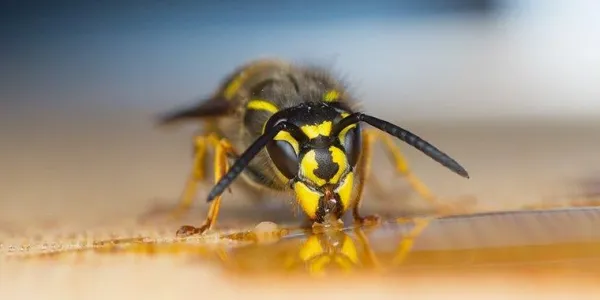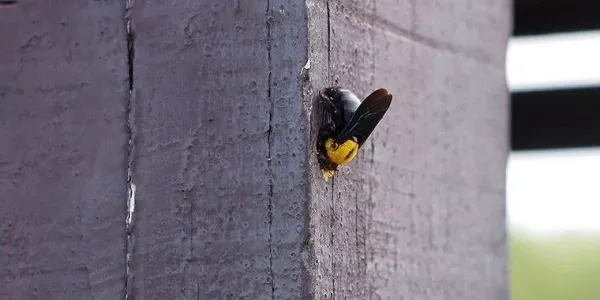Stinging Insects
Stinging insects are a broad group of pests that include wasps, bees, hornets, and yellow jackets. These insects are capable of delivering painful stings and are often encountered around homes, yards, and outdoor spaces. While many stinging insects play an important role in pollination and natural pest control when they live away from people, problems arise when they nest close to human activity.
Stinging insects are highly defensive and will protect their nests if they feel threatened, which is why their presence near homes and walkways can quickly become a safety concern.
Are Stinging Insects Dangerous?
Stinging insects can pose serious risks, especially when nests are disturbed.
Their venom causes immediate pain and swelling, and in some individuals, stings can trigger severe allergic reactions. In rare cases, multiple stings or reactions in sensitive individuals may lead to anaphylaxis, which requires urgent medical attention.
Nests built in high-traffic areas, near entrances, or in the ground where they are easily stepped on tend to present the greatest danger.
Why Stinging Insects Settle on Properties
Stinging insects are attracted to properties that provide suitable nesting locations along with easy access to food and water.
Depending on the species, they may feed on:
- Other insects.
- Nectar and pollen.
- Sweet foods and beverages.
- Proteins found in outdoor eating areas.
Gardens, flowering trees, trash containers, and outdoor dining spaces are common foraging areas. Standing water sources such as clogged gutters, birdbaths, ponds, and pools also make properties more attractive to stinging insects.
Where Stinging Insects Are Commonly Found
Most stinging insects nest outdoors and fall into two general categories: aerial nesters and ground nesters.
Aerial nesters often build nests:
- On tree branches or inside tree cavities.
- Under roof eaves and decks.
- On utility poles and exterior structures.
- Near doorways and entry points.
Ground nesters typically place nests:
- In soil or landscaped areas.
- Beneath shrubs or bushes.
- Under woodpiles or debris.
- Inside abandoned animal burrows.
In some cases, stinging insects may establish nests inside structures, including attics, chimneys, or wall voids.
When Stinging Insect Problems Require Professional Help
Visible nests near living spaces, repeated insect activity, or aggressive behavior often indicate a problem that should be addressed professionally. Because stinging insects defend their colonies, attempting removal without proper training can increase the risk of stings and injury.
Preventing Stinging Insect Activity
General prevention focuses on limiting nesting opportunities and food sources.
- Seal gaps along rooflines, siding, and exterior walls.
- Install chimney caps and repair damaged window and door screens.
- Fill in ground holes that could support nesting.
- Trim tree branches away from structures.
- Remove fallen trees, stumps, and debris.
- Use tight-fitting lids on trash and compost containers.
- Keep outdoor eating areas clean and free of food residue.











